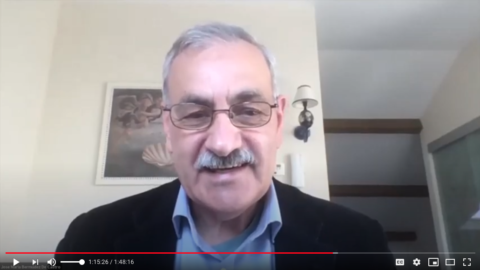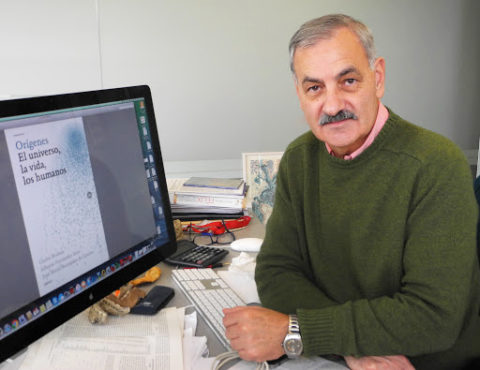B
The Spanish paleontologist, co-director and principal investigator of the Atapuerca site, took part in the Caxton College IV Forum of Educational Innovation.

In a recent webinar organized by the British school in Puçol, Bermúdez de Castro drew on the learning processes of millions of years ago to explain how that evolutionary journey has led us to where we are now and how we can use certain experiences to come to terms with the reality of post-COVID-19. “It is essential to know the biological characteristics and variability of the cognitive capacities of the brain and the mind of Homo sapiens before tackling any debate about the best education we can offer our children,” said Bermúdez de Castro, who, for his invaluable paleontological contributions, was awarded the the Prince of Asturias Prize for Scientific Research.
Everything changed when the first hominids of our genealogy moved away from the forests and had to live with other predators, search for food in a different way and adapt to a new way of life. “The changes to our brains, both in volume and complexity, have occurred in response to these kinds of adverse experiences, which we have been experiencing since first existing as a zoological group.” In educational terms, resilience, adaptability and cooperation are integrated into our culture, since our ancestors had to develop these social and cognitive skills to survive. “Thanks to the neuroplasticity of the brain we have been able to adapt to very variable and changing scenarios. and evolve ahead of any other species ”, assured the paleontologist who originates from Madrid.

Learning should have an important emotional effect, in line with the characteristics of our brain, rather than being just an exercise of memory. The data that we need can be easily found in documents, without having to be compulsively stored in our memory. “It is very important that the knowledge that students receive generates pleasure, because that way ideas will lodge firmly in their brains,” said the first director of the National Centre for Research on Human Evolution. Learning to reason and using logic is just as important. “We must think carefully about the best ways to teach and be with our adolescents as, at this stage the brains of young people are “reset” at a neural level. That is why there are behavioural changes that, while they may seem errant, are completely necessary for the development of their brains,” continued Bermúdez de Castro.
Our brain has an information storage capacity of 2.5 petabytes, with one petabyte being the equivalent of one million megabits. That is, much more powerful than the computer with the largest capacity we have in Spain. “We are all good at something, we have some innate ability in art, in maths, etc. Therefore, we cannot claim that there is a genetic determinism. With training, perseverance and effort, taking advantage of the potential of our brain, these skills can be changed. If we are not naturally good at something we can learn it.”
The brain consumes a lot of energy. It is a very expensive organ to maintain as when we sleep it consumes 20% of our energy. In children, when the brain is in full development, this consumption can even reach 60%. “Our intellectual performance will be better if we practice sports frequently. It is essential for our brain to function well. Children should do physical exercise daily. It not only provides the oxygen and glucose necessary to feed the brain, but also favours its plasticity. “Schools must give as much importance to physical education as to Mathematics or Literature.”
Furthermore, the paleontologist referred to the connectivity between people. “Human beings need direct and face-to-face visual contact, that is, direct communication. As much as technology has advanced, biologically we are very similar to what we were 250,000 years ago, we are social primates in need of direct contact,” confirmed Bermúdez de Castro.
With the aim of continuously improving our education system, Caxton College, hosted the fourth edition of the educational innovation forum, where the findings of prestigious experts connected to different areas of contemporary thought are shared with Valencian society.
